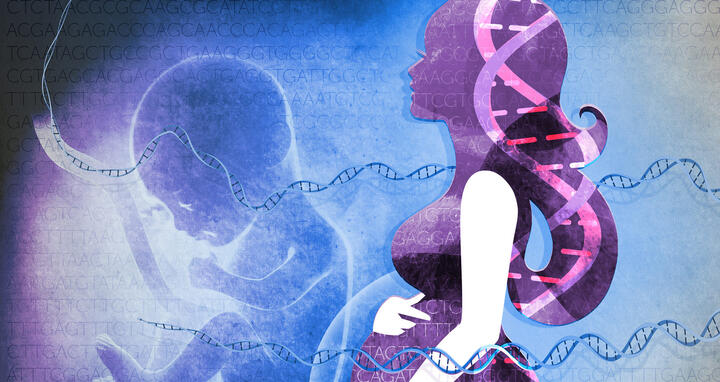Berlin, Texas, and back: Sandra Blois researches pregnancy complications
“After being three years in Houston I'm very happy to be back in Berlin,” says Sandra Blois who joined the MDC in the beginning of the year. Her main research interest is the study of pregnancy complications that result in serious lifelong consequences for the health of the mother and her baby.
Dr. Sandra Blois, new head of the Reproduction Glycoimmunology lab at the ECRC
Branched molecules called glycans encode information in their structure by chaining different kinds of sugars in a specific sequence. These molecules form a crucial interface that transmits signals between the intracellular and extracellular compartments and regulate several biological processes, including immunity.
Blois investigates questions such as: Which maternal-placental glyco-signals influence the child’s lifetime susceptibility to diseases like obesity or heart disease? And how does the interaction of glycans with their ligands (e.g. galectins) influence placental development and function?
Therapies for pregnant women
“We know too little about the role of glycan-mediated signaling in normal and diseased pregnancies,” says the scientist. Her research will contribute to developing new diagnostic tools and individualized therapies for pregnancy complications.
At the MDC, the research projects in Blois’s lab include the analysis of glycocode dynamics in the healthy and diseased placenta and the characterization of the placental glycocode signature in the maternal circulation. Her ECRC research group “Reproduction Glyoimmunology” is supported by German Research Foundation (DFG) through the Heisenberg Program.
An international career
Dr. Blois started her training in Argentina, where she obtained a degree in Biochemistry at the University of Córdoba and a PhD in Immunology at the University of Buenos Aires. In 2010, she obtained the Habilitation in Immunology at the Charité University Berlin. Other stops in her scientific career include Oxford University, University College London, and MD Anderson in the USA.
Further reading
Chen Q, Pang PC, Cohen ME, Longtine MS, Schust DJ, Haslam SM, Blois SM, Dell A, Clark GF. Evidence for Differential Glycosylation of Trophoblast Cell Types. Mol Cell Proteomics. 2016 Jun;15(6):1857-66. doi:10.1074/mcp.M115.055798
Freitag N, Tirado-González I, Barrientos G, Herse F, Thijssen VL, Weedon-Fekjær SM, Schulz H, Wallukat G, Klapp BF, Nevers T, Sharma S, Staff AC, Dechend R, Blois SM. Interfering with Gal-1-mediated angiogenesis contributes to the pathogenesis of preeclampsia. Proc Natl Acad Sci U S A. 2013 Jul 9;110(28):11451-6. doi:10.1073/pnas.1303707110






